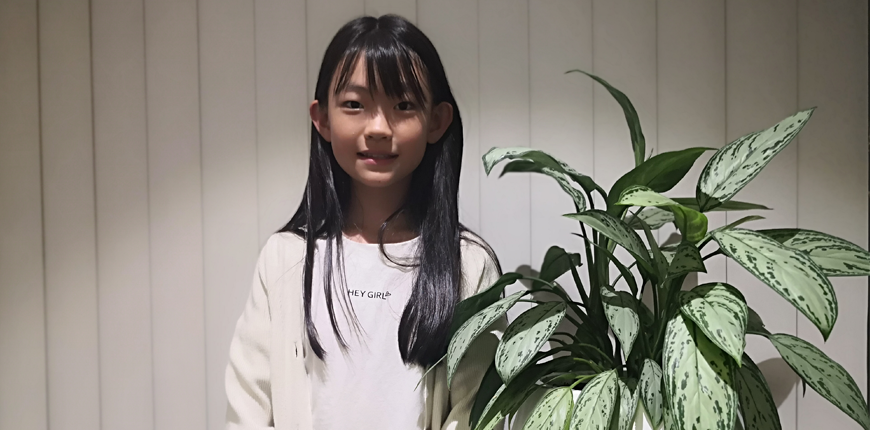Wits Maths Competition sharpens school learners
- Wits University
Learners praise competition for providing a mixture of stimulating challenges that took them out of the comfort zone.

Top scorers in the Wits Maths Competition (WMC) have praised the dynamic scope of the papers which stretched their abilities. Winners of the competition were recently announced. The mental jamboree drew approximately 7000 participants from nine countries across various levels. Open to learners from Grade 4s to tertiary students, the Middle Primary level comprising of Grades 4-5 attracted 1150 participants, Upper Primary (Grades 6-7) 2000 learners, Junior Secondary (Grades 8-9) had 1800 while the Senior Secondary category (Grades 10-12) had 1650 and finally, the Undergraduate university category had an impressive 400 students.
Celine Xu a Grade 5 learner topped her peers and scored a medal and calculator in two papers that consisted of 20 multiple choice questions, 10 single answer questions and two proofs.
Xu who loves advanced mathematics says the paper “really challenged my logical thinking and I thoroughly enjoyed them”.
Like many who excel in maths, she believes that the more you practice the better you become. A maths enthusiast, she entered as an independent candidate as her school is not yet a contender in the tournament. With the support of her mother whom she describes as a talented mathematician, Xu has been able to explore her interests in maths. The 11-year-old hopes to become an astronaut one day and knows that mathematics will take her to the moon and to the unknown.
In her category she was closely followed by learners from Redhill School who took six of the top 10 positions. Read our interview with Jacolene Venter, Numeracy Co-ordinator at Redhill outlining strategies used at the school to stimulate interest in the subject.
The Wits Maths Competition is coordinated by the School of Mathematics and has been running for five years. The competition consists of two rounds. The first round is written at school and the final round at either Wits or regional venues. During covid schools were allowed to write the final round at school.
An independent ethics board consisting of Professor Andrew Obus from CUNY Baruch College, Professor Torin Greenwood from North Dakato State University and Dr Liam Baker from Stellenbosch University adjudicated suspicious cases as an extra measure to ensure fairness.
Emmanuel Rassou, a Grade 12 learner from S.A. College High School (SACS), took first place and produced the best proofs in his category.
“I feel blessed for having won the senior secondary two years in a row. Of course, the competition was tough, causing the margins in the rankings to be very small. Credit must be due to those who also ranked top 10 overall,” said the whizzkid.
He also has his own strategies which help him to stay ahead. This includes using past papers sourced online and attempting harder content not covered at school.
‘Doing math drills for homework is important, however emphasis should also be put on understanding the concepts in class. I encourage high school learners to ask their teacher (or fellow students) not just for the answer, but their reasoning and insight behind it. Dwelling on a difficult concept until it makes sense for you might be helpful to build a good foundation for future aspirations in the field of maths,” he said offering tips to other learners.
Commenting on this year’s results Jonathan Kariv, competition coordinator said: “It is interesting to note that at the very top in the senior categories we have repeat winners. The top kids spend time training for mathematics competitions and this really is what determines who wins. Many past winners in the younger age groups have been pulled into various training programmes and this has improved the top end down the line.”
As the legacy of inequality in South Africa continues to discolour the outcomes and abilities of learners in under-resourced schools, the WMC recognises the best performers from disadvantaged schools, with awards for notable achievers from these schools. Similarly, the schools themselves are recognised for rising beyond the financial limitations as these teachers going beyond the call of duty to overcome the systematic challenges in order to give their learners opportunities.
For example, Dirang Ka Natla Secondary School from the North-West province received recognition as a notable quintile 3 school in the senior secondary category.
Mbizeni Combined School located in KwaZulu-Natal School had 23 learners and was one of the schools that received notable mention in the upper primary category. Boosting the skills and confidence of learners has required extra investment from teachers such as Ms Sinenhlanhla Zwane. Personally, Zwane has enrolled in several courses and strives to improve her teaching methods and ability to cater to different learning styles. The outcome is a gradual improvement in the marks of her pupils and changing mindsets towards the subject. As such, they participate in the WMC and South African Mathematics Olympiad to benchmark their performance.
Wits University is committed to shaping South Africa’s talent pipeline and the WMC is one of several programmes and interventions that seek to nurture young minds, particularly in the fields of maths, science and technology.
Read about these:

